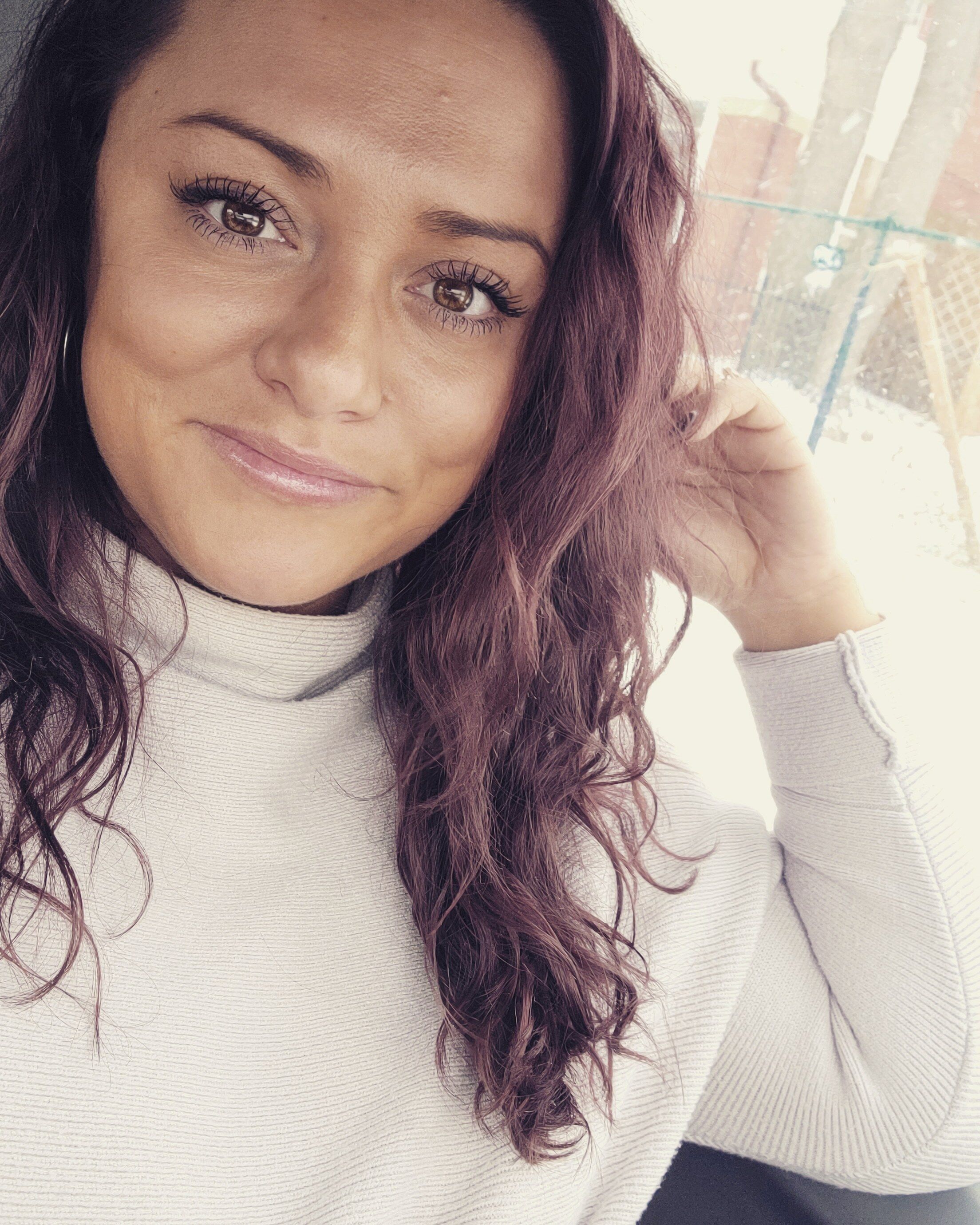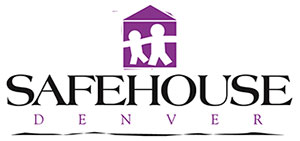
Welcome to SafeHouse Denver's new series, which explores a typical workday for Advocates across the agency and how their specialized roles support survivors.
Natasha Adler, MPA is the Interim Director of Survivor Services & Data Management at SafeHouse Denver. Although this title is new, she has worked with survivors at SafeHouse for four years.
Natasha is also the lead SafeHouse Denver staff person at the Rose Andom Center (RAC), one of our key community partners that provides consolidated support for survivors through allied agencies. On any given day, Natasha will handle referrals, screen for services that are appropriate to a survivor and their immediate needs, conduct intake appointments and assign survivors to SafeHouse Advocates for ongoing advocacy-based counseling. On a regular basis, Natasha participates in several multidisciplinary teams serving the Denver region, including triage functions for RAC and the Denver Police Department (DPD) to provide prevention and intervention, as well as the Colorado Fatality Review Board, which gathers actionable data from domestic violence incidents to improve responses in day-to-day practices.
In her own words, Natasha explains how this range of responsibilities paints a fuller picture of the services and resources that are available to support survivors and enhance advocacy at SafeHouse Denver.
“My morning is usually spent […] checking in with emails; making sure that I’m logging incoming referrals that I usually receive via email into our data tracking system in Apricot; and spending some time scheduling with survivors and asking them screening questions. I might even schedule a virtual intake in the morning and conduct that with the survivor to do some of those direct-service things.”
“I also spend my morning going through the case list. Every day, DPD sends out a list of all the DV cases that have come in the day before, and that’s passed on to the Triage team. I go in our database that’s shared with the Triage team members, and I look at the cases and just familiarize myself with them. Are there any specific red flags that stand out for me? Are there points of intervention? Are there notes that maybe this person might benefit from counseling or shelter? I do that with every single case just because even if that’s not a case we review, that person might come through the Crisis Line or through a Rose Andom Center referral, and that happens pretty frequently.”
“Then I go and I attend the Triage meeting. We have a list of cases […] that are particularly high-risk for whatever reason. Maybe there are children in the home, maybe there’s a firearm involved, maybe there’s a severe strangulation resulting in loss of consciousness. Or maybe somebody has complex needs and it just would benefit from a bigger conversation with the professionals around the table who have all these different knowledge bases and resources.” (Editor’s note: These professionals are representatives from both community-based and systems-based entities. On the community side, SafeHouse Denver and RAC are joined by Project Safeguard, Denver Children’s Advocacy Center and the Fatality Review coordinator. On the systems side, the Denver City and District Attorneys’ Offices are represented along with a DPD sergeant, county and adult probation officials and pre-trial services.) “We do that for about an hour and 15 minutes and go over each case and ask ‘Hey, can you reach out?’ or ‘This is concerning… let’s just keep an eye on this,’ or ‘I saw this two years ago… remember this happened?’ or ‘I wonder if we could try that… have you heard of this resource?’”
“The rest of the afternoon will be spent doing more of that direct client work. There are some days where I may go off-site and do a training or attend a meeting. For example, I attend quarterly meetings for the Cold Case Task Force, which is hosted by the Colorado Bureau of Investigation. I’ll attend the Denver Anti-Human Trafficking Alliance meetings. I may also make some one-off calls if there’s something that happened in Triage where somebody could benefit from talking to an Advocate with confidentiality kind of quick.”
“At SafeHouse Denver, I also sit with my team. We have various meetings for further education, so we’ll have outside organizations come in and teach us a little bit about the services that they provide so we can add that to our toolbox for when we’re working with survivors. We have meetings where we debrief some of the more complex or tricky cases that we’re all struggling with and give each other feedback and advice. And we have our administrative meetings where we just check in with each other.”
What is a recent breakthrough or success story that you have experienced?
“Our participation in the [police] academy is pretty new. That’s happened within the past year. The former lieutenant had approached me and asked if I would be willing to participate. I’ll teach quarterly at the police academy on how officers can provide trauma-informed responses to survivors and then also familiarize them with the community systems base collaboration – how that works and why it’s so great – and how confidentiality can benefit folks. That’s big, because […] we see it all the time where survivors are like, ‘I called the police and this is how they treated me and it made me not want to report.’ That’s not necessarily to bash the police department, but they don’t have the kind of training that we have. So the fact that they wanted to bring us in – they wanted to learn more, they were open to having conversations about what trauma-informed responses are and how can we better access our community partners as the first responders to these assaults – I thought was really, really big and an exciting partnership opportunity for us. As far as a big-picture level, I’d consider that a success.”
“When it comes to survivors in particular, when I do an intake and we screen on ‘Have you ever been in any mental health therapy before?’ or ‘Have you ever had access to community resources or engaged with other agencies?,’ I always get really excited when I get the folks who haven’t done any of it. ‘I’m 45 years old, never been to therapy, I’ve been with my abuser for 20 years, I didn’t even know that this resource was available.’ Those initial conversations of opening the door to ‘This is all for you,’ and people not only having the bravery to access those services, but then the realization that they get […] is so impactful to see that it’s just the beginning of their journey with us at SafeHouse.”
What is a barrier that you have been able to overcome?
“I think a big one for me happens specifically in the work that I do with Triage. We see every domestic violence case that comes through DPD, and we get about 3,000 a year – that’s like 250 cases a month. It’s a lot, and you can’t obviously do something for each and every single one of those cases. That can be frustrating, just knowing that we don’t have the manpower as a Triage team – and as a community – to support every survivor. That can be discouraging. And then also, the cases that we bring to Triage: we bring them because they’re high-risk. We want to learn something, we want to help, we want to be informed. But sometimes, there’s nothing we can do immediately. Maybe the survivor didn’t want to have contact with us; they decline, ‘I’m fine,’ or they’re recanting [their statement]. But we know that their situation is potentially very lethal.”
“That’s really hard to sit with, but what I find so valuable about the work that we do is that every single conversation we have, every single survivor that we familiarize ourselves with – we’re planting that seed. That person almost always does come around in some way, shape or form. I may see somebody in Triage who’s like ‘I’m not talking to anybody, I don’t want any support,” and in three months, they’ll come through our Crisis Line and engage in services. I can recognize those names, and I know what’s going on and I have the context. We can really create a tailored, whole-person approach to our survivors. We might not be able to do anything in the moment then, but when they do come back around, we are prepared to support them and reach them where we’re at. I think that’s a barrier and also an opportunity.”
What do you enjoy most about your work with survivors?
“I love my job so much. I really love what I call the ‘a-ha moments,’ where it just kind of clicks. Whatever we’re talking about – whether it’s ‘I do have access to resources… wow, that’s so cool’ or ‘You know what? Maybe what [my abuser] said wasn’t true about myself.’ That lightbulb goes off, and they come to that realization. I love being a part of that. It’s so powerful, even when it’s just what can seemingly be something so small. It’s life-changing to that person.”
“They go hand in hand, but I also love watching survivors empower themselves again. The rebuilding and the strength that they find within themselves – to be able to say I got to walk this journey with you, but you did the hard work. It’s really, really humbling, and I learn so much from survivors. They’re so strong, they’re so inspiring and I love all of the little wins on the way to who they’re becoming in the future.”
Learn more about SafeHouse Denver’s full continuum of trauma-informed services to support survivors of domestic violence and their children. If you or someone you know is experiencing domestic violence, call our 24-Hour Crisis & Information Line at 303-318-9989. We are here for you!
Follow us on Facebook, Instagram, LinkedIn or YouTube to see Natasha discuss more about these important topics!

